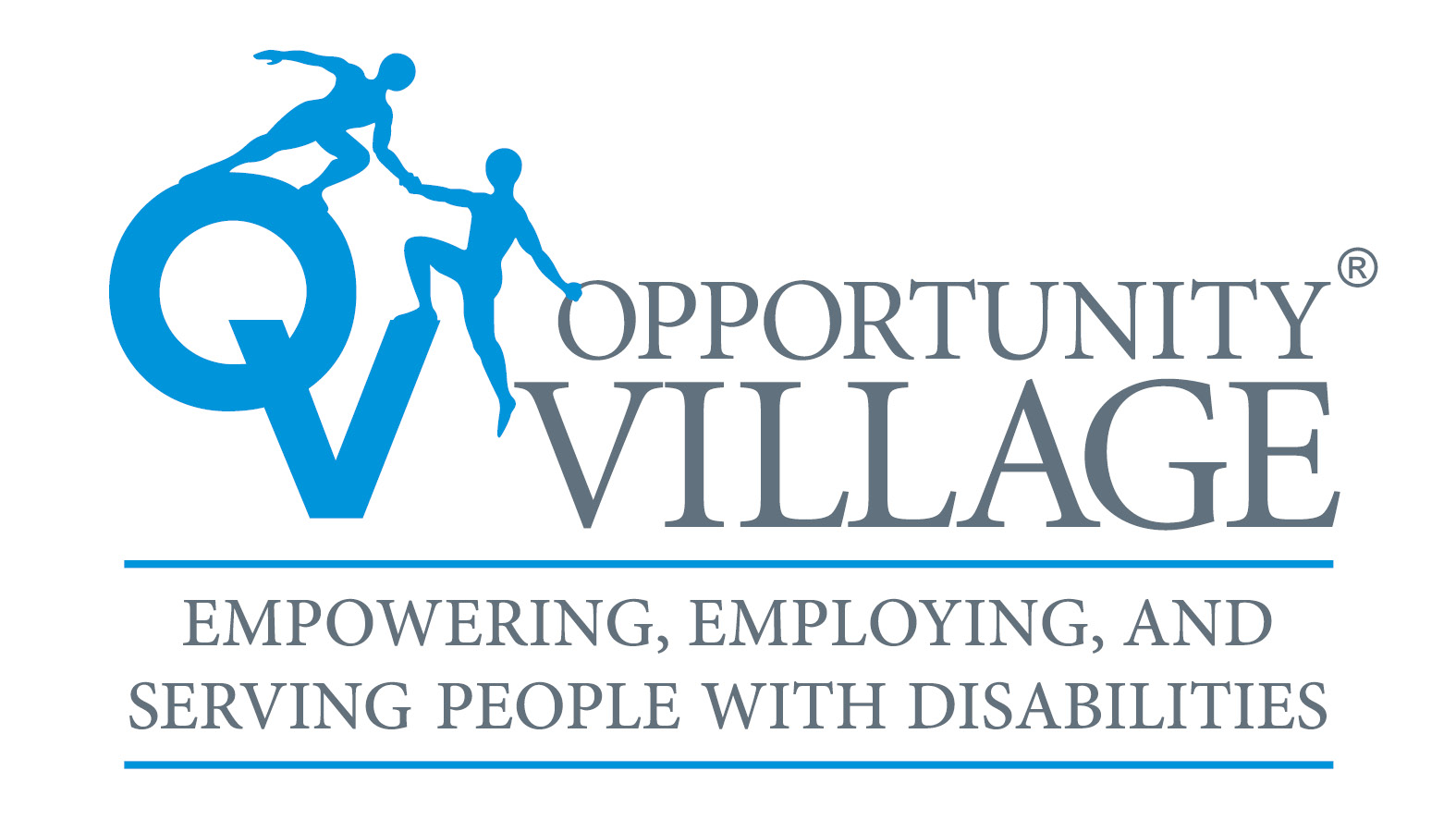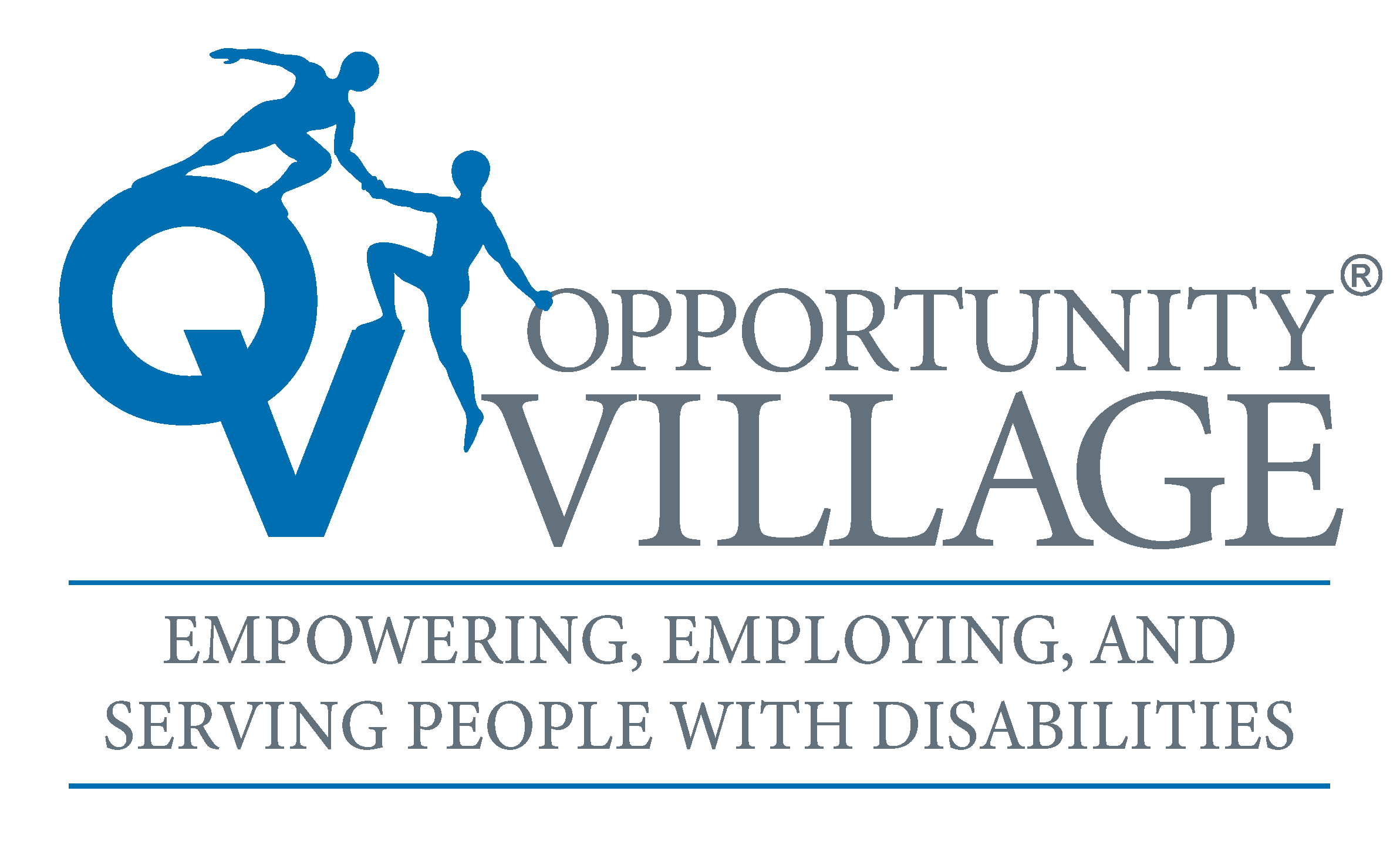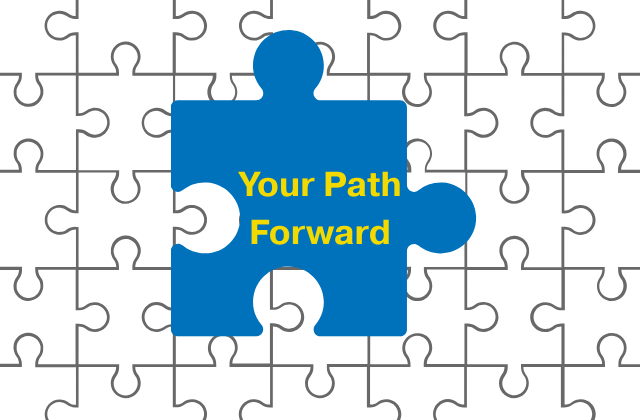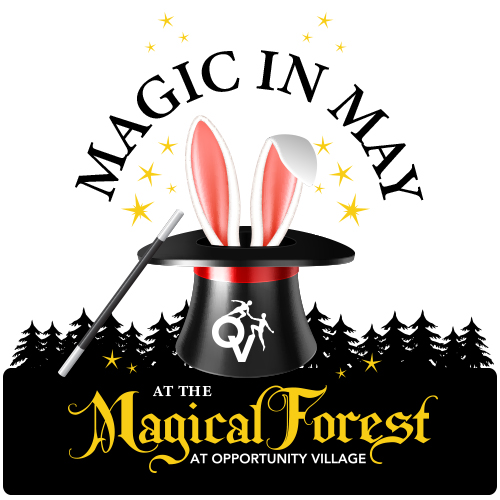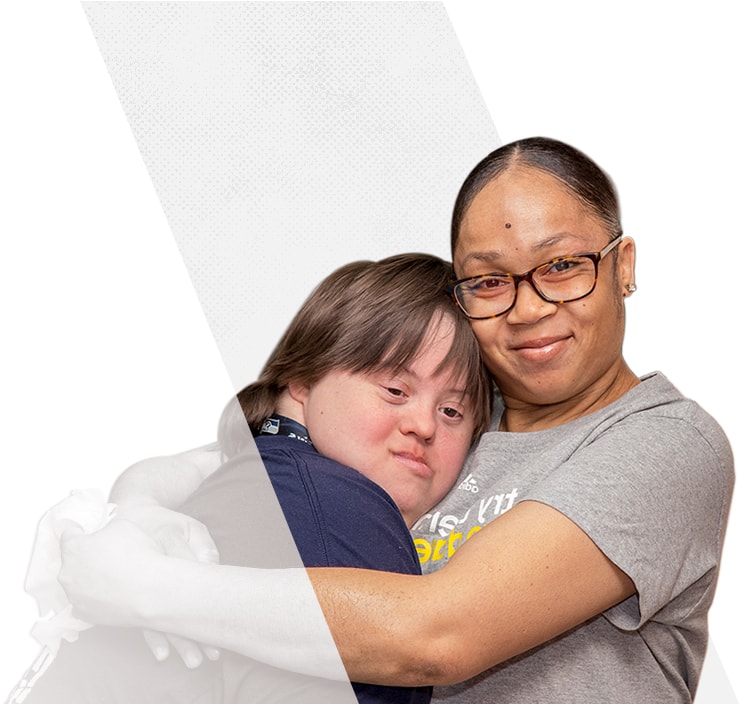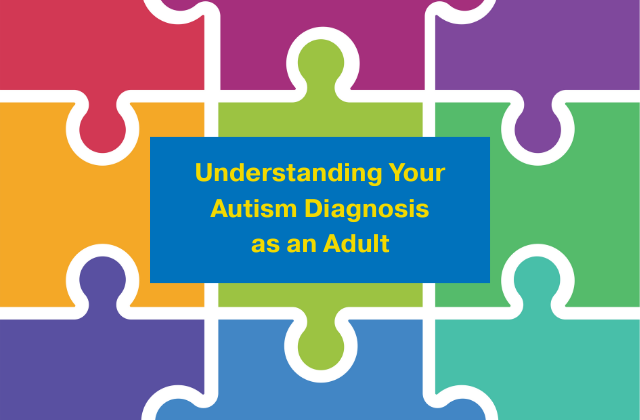
You’ve just received an autism diagnosis as an adult.
Maybe it explains things you’ve always wondered about — your sensitivity to sound, how draining social interactions can feel, or your need for structure and routine.
Maybe you’re still trying to make sense of it. Or it could feel like a relief. A weight off. A name for something you’ve carried quietly for years.
Whatever you’re feeling, you’re not alone. Use this guide to understand what your diagnosis means, what comes next, and how to move forward with clarity and confidence.
Let’s start with what an adult autism diagnosis actually means.
Understanding Your Autism Diagnosis As an Adult
Autism Looks Different in Adults
A lot of autism information still centers on children. But autism doesn’t disappear with age. It just shows up differently in adults.
Instead of externalizing your feelings, you might experience shutdowns: withdrawing, freezing up, or going nonverbal when overwhelmed. Instead of obvious social struggles, they might look like constant overthinking, anxiety, or exhaustion after social events.
You might have become an expert at masking — copying other people’s social behaviors, forcing eye contact, rehearsing conversations in your head, or smiling when everything inside feels too much.
Masking helps some people get through the day. But over time, it can lead to intense burnout, anxiety, and a fractured sense of identity.
That’s why an autism diagnosis as an adult can hit so hard (and feel so validating). It’s not about labelling yourself. It’s about finally having an explanation that fits.
You might look back on past experiences with fresh eyes. “That wasn’t me being lazy — I was overloaded.” “That job didn’t fail because I was bad at it — it just wasn’t built for how my brain works.”
And with that understanding often comes a few misconceptions. So, let’s address the big ones.
Myth: “If you’re high-functioning, you don’t need support.”
Reality: Functioning labels are misleading. Many adults with autism appear to cope on the outside while struggling internally. Support should be based on individual needs — not assumptions.
Myth: “You can’t have autism if you’re empathetic.”
Reality: People with autism often feel empathy intensely, sometimes too intensely. What’s different is how they express it or interpret social signals — not whether they care.
Myth: “It’s too late for a diagnosis to make a difference.”
Reality: A diagnosis doesn’t change your past but can change your future. It can help you make sense of your experiences, advocate for your needs, and start living in a way that feels more aligned with who you are.
For a deeper dive into what autism is (and isn’t), Opportunity Village has a helpful page with facts about autism to get you started.
The Emotional Journey After Diagnosis
Getting an autism diagnosis as an adult can bring up varied and complex feelings.
- Relief – finally, an explanation.
- Grief – for years spent misunderstood.
- Validation – you weren’t imagining it.
- Anger or regret – wondering what could’ve been different.
- Hope – for a future that fits you better.
All of these are valid.
It’s common to revisit old memories with a new perspective. You might find yourself thinking, “That meltdown wasn’t me being dramatic. That was sensory overload.” Or “I wasn’t rude — I was overwhelmed.”
This reprocessing can be emotional. Give yourself time.
What to Do Next – Build a Support System
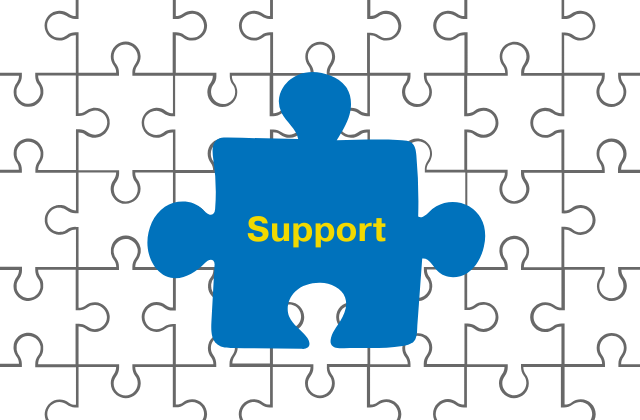
Now that you have a diagnosis, you might wonder: Do I need to tell people? What kind of support can I get? Where do I even begin?
You don’t have to figure it all out at once. But here are a few practical next steps to help you move forward with clarity.
Decide Who to Tell
You don’t have to tell anyone unless you want to. Some people choose to tell close friends or family. Others tell their employer or doctor. And some keep it private. Ask yourself:
- Will this help me get support or accommodations?
- Will it improve my relationships?
- Am I safe and comfortable sharing this?
If the answer is yes, then you can plan how to share it — on your terms, in your words. Read more about this in the section below: Should you disclose your diagnosis at work?
Seek Autism-Informed Healthcare
Not every healthcare provider understands adult autism. So once you have your autism diagnosis as an adult, you may find you need a new healthcare team. You deserve someone who listens, respects your experience, and understands how autism can affect mental health, pain, communication, and more.
Therapists who specialize in adult autism can help you:
- Rebuild your sense of self
- Process burnout or trauma
- Learn self-advocacy and communication skills.
Look for autism-informed GPs, therapists, or specialists who are neurodiversity-affirming (meaning they support who you are rather than trying to change you).
If you need a place to start, the Autistic Self Advocacy Network has resources made by and for people with autism.
Know Your Rights
Under laws like the Americans with Disabilities Act (ADA), you have the right to:
- Request reasonable accommodations at work
- Access public services
- Be protected from discrimination.
These protections apply even if you don’t consider yourself disabled. They’re there to support your well-being — use them when you need to.
Find Your Community
Many adults say finding a community is one of the best parts of getting diagnosed. You’re not the only one going through this.
There are peer-led groups, online spaces (like forums, Facebook and Discord), and local support networks where you can talk to other adults with autism. You’ll realize you’re not alone — and you never were. Connecting with others who “get it” can be life-changing. It helps reduce shame, isolation and self-doubt.
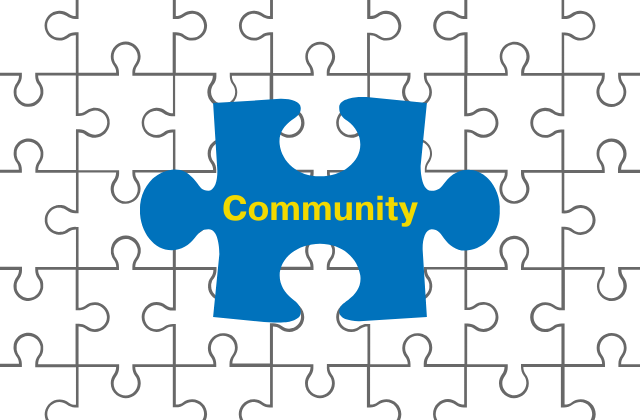
Embracing Your Neurodivergent Identity
An autism diagnosis doesn’t change who you are. It helps explain why you experience the world the way you do and gives you the tools to work with your brain — not against it.
Play to Your Strengths
People with autism often bring incredible focus, deep interests, honesty, creativity, and unique ways of thinking. You might see patterns others don’t. Or notice details that others miss. These are undeniable strengths, not quirks to hide.
Honor Your Sensory Needs
Whether it’s noise, light, texture, or temperature — sensory overload is real. Start paying attention to what soothes you and what drains you. Noise-cancelling headphones. Soft clothing. Dim lighting. Routine breaks. These aren’t indulgences. They’re necessities.
Build an Autism-Friendly Life
You don’t have to shape yourself to fit the world. You can start shaping your world to fit you. This might mean:
- Creating quiet spaces at home or work
- Using visual reminders or checklists
- Stimming freely
- Advocating for your needs.
It’s okay to create a life that works for you — even if it looks different from others.
Finding Your Place in the Working World
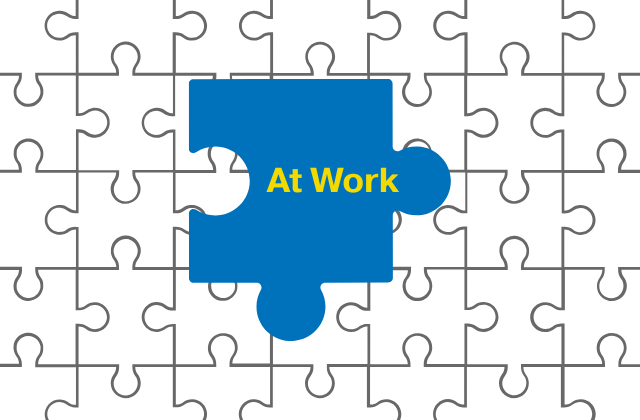
Work can be one of the hardest areas to navigate after an adult autism diagnosis, especially if you’ve spent years masking or pushing through stress just to get through the day.
But when the environment fits your needs, you can find purpose, structure, and even joy. Let’s look a little closer.
Should You Disclose Your Diagnosis at Work?
There’s no right or wrong answer here. Some people share their diagnosis with their employer to access formal accommodations or foster better communication. Others keep it private. Either option is valid — it depends on your workplace, your role and your personal comfort.
If you’re thinking about disclosing, consider three things first.
- Why now? Are there specific challenges you’re facing that could be helped by workplace adjustments?
- Who needs to know? You don’t have to share with everyone. Start with your direct supervisor or HR if you’re comfortable.
- What’s your goal? Think about what support you’re asking for rather than focusing on the diagnosis itself.
It can help keep the conversation simple and professional if it feels overwhelming. You don’t have to tell your life story. For example:
“I’ve recently been diagnosed with autism. I’ve learned that I work best with written instructions and a bit more processing time during meetings. Can we discuss some adjustments?”
You’re not asking for special treatment. You’re setting yourself up for success. And that helps your employer, too.
Requesting Accommodations
Under the ADA, you have the right to reasonable accommodations at work. These changes or supports allow you to perform your job effectively without creating undue hardship for your employer.
Accommodations don’t need to be complicated. Sometimes, small adjustments make a big difference — like extra time for written tasks, a quieter workspace, or clear expectations laid out ahead of time.
The tricky part is knowing what to ask for. So start by noticing what’s currently making your workday harder than it needs to be. Is it noise? Last-minute changes? Vague communication? Social overwhelm? Executive functioning challenges?
Once you identify your sticking points, you can work backwards to determine the supports that might help.
Here are a few real-world examples that might help generate ideas.
- Providing agendas before meetings so you can prepare.
- Allowing you to wear noise-cancelling headphones while working.
- Offering written instructions alongside verbal ones.
- Being flexible with breaks or hours when possible.
- Using clear deadlines and task expectations.
You don’t have to figure this out alone. An autism-informed career counsellor, job coach, or our pre-vocational support program can help you prepare and even practice these conversations.
Even if you’re not ready to disclose, you can still advocate for your needs by asking for support in a more general way:
“I’ve noticed I focus better when I have a written summary after meetings. Could we try that out?”
Accommodations should make your job more manageable — so you can show up as your best self.
Rethinking Your Path
For many people, an autism diagnosis as an adult triggers a powerful shift in how they think about work — not just how to manage it, but what kind of work actually feels right.
You might start asking different questions, like:
- What kinds of tasks energize me, instead of draining me?
- Do I thrive in routine, or do I need flexibility?
- Do I prefer working alone, or in small, familiar teams?
- What kind of sensory environment feels sustainable long term?
The answers can point you toward roles that better match your natural strengths. That could mean technical jobs, hands-on roles, creative work, or analytical paths. It might also mean rethinking what success looks like for you — not what others expect.
Some adults with autism find fulfillment in self-employment or freelance work. Others find the right fit in companies that actively support neurodiversity. And some prefer to ease into the workplace slowly, building skills and confidence over time.
That’s exactly what Opportunity Village’s pre-vocational and job development programs are here to support. Whether you’re exploring your options, building confidence, or ready to find meaningful employment, we can walk alongside you — at your pace, on your terms.
You’re Not Alone. And You Don’t Have to Figure This Out Alone, Either.
An autism diagnosis in adulthood can fundamentally shift things. It’s the beginning of understanding yourself more fully — and building a life that fits.
Whether you’re looking for day programs, life skills training, or help finding the right career path, Opportunity Village is here to help.
Support for Your Supporters
Be reassured if you’re reading this as a caregiver, partner, parent, sibling, or friend. Your presence, curiosity and willingness to understand means more than you may realize.
Getting an Autism diagnosis as an adult can shift long-standing dynamics. You might see your loved one through a new lens, reinterpreting past challenges, and asking yourself, “How can I be the best support now?” That’s a good question. And it starts with listening.
Try to accept your loved one’s experience, even if it doesn’t match your own. Believe them when they say they’re overwhelmed or that social situations are hard to read. Let them define what autism means to them. And if they’re still figuring that out, that’s okay too.
You don’t need all the answers. What helps most is your willingness to keep showing up with patience and respect.
It’s also worth learning from people with autism, writing about autism so you can understand this journey from the inside out. Search out books, blogs, talks and firsthand stories. When you do that, you’re not just supporting your loved one. You’re also creating safer, more accepting spaces for others.
If you’re looking for a place to start, Opportunity Village is here for your loved one — and, by extension, for you too. We built our programs to help adults with disabilities build skills, find purpose, and feel part of something. You don’t have to figure it all out — explore our disability services.
FAQ: Getting an Autism Diagnosis As an Adult
Why Wasn’t I Diagnosed Earlier?
Many adults go undiagnosed until later in life. Autism often presents differently from the “typical” childhood traits that diagnostic tools were originally designed around. You may have learned to mask your traits from a young age or were misdiagnosed with something else. A later diagnosis doesn’t mean you didn’t already have autism — it just means you’ve finally got the right lens to understand yourself.
Can I Still Get Support As an Adult?
Absolutely. You don’t age out of needing support — and you don’t have to do this alone. Support is available at every stage of life, from therapy and community groups to workplace accommodations and daily life adaptations. Opportunity Village offers programs specifically for adults, including day habilitation, skills training, and career support.
How Do I Explain This to My Family or Kids?
Start simple. You could say something like, “I recently found out that I have autism. It means my brain processes things a little differently, and now I better understand myself — and what I need to feel my best.” Focus on what the diagnosis means for you now, rather than trying to explain everything all at once. Let your loved ones ask questions, and be open about what kind of support you’d find helpful.
What’s The Difference Between Autism and ADHD?
Autism and ADHD can overlap, and many people are diagnosed with both. ADHD often involves challenges with attention, focus, and impulsivity, while autism is more about differences in social communication, sensory processing, and routines. Both are forms of neurodivergence, affecting how your brain interacts with the world. It’s okay if the differences feel blurry — what matters most is understanding your own needs.
Is Autism a Disability?
Yes, autism is considered a developmental disability, and that classification helps ensure legal protections and access to support. But it’s also part of who you are. Many people see it as a neurodivergent identity, not just a diagnosis. The important thing is that you have the right to support, acceptance, and dignity — no matter what language you use.
What’s The Best Way to Start Getting Help?
Start with one step. That might mean looking for a therapist who understands autism in adults, joining a local peer group, or checking out programs designed to support your daily life or work goals. If you’re in Southern Nevada, Opportunity Village can help you explore your options with programs built for adults with intellectual and developmental disabilities. We’re here to support and walk alongside you as you figure out what comes next.
